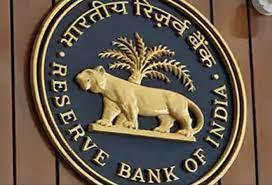Sponsored
RBI's Role in Managing Government Debt

The Reserve Bank of India (RBI) plays a crucial role in managing government debt, which involves the issuance, servicing, and redemption of government securities. This process is essential for maintaining fiscal stability and ensuring the smooth functioning of the economy. Additionally, for those aspiring to join the RBI, preparing for the Grade B exam is a significant step towards a rewarding career in the central banking sector. Let's delve into these topics in detail.
RBI's Role in Managing Government Debt:
Government debt refers to the money owed by the central or federal government. It is usually in the form of government securities, such as bonds and treasury bills, which are issued to finance government spending when tax revenues fall short. The RBI acts as the central bank of India and plays a pivotal role in managing this debt through various mechanisms:
Issuance of Government Securities:
The RBI acts as the agent of the government for issuing and managing its securities. These securities serve as a means for the government to borrow money from the public and institutional investors to finance its expenditure.
Conducting Open Market Operations (OMOs):
OMOs are one of the primary tools used by the RBI to manage government debt. Through OMOs, the RBI buys and sells government securities in the open market to regulate the money supply and interest rates in the economy.
Managing Cash Flows:
The RBI coordinates with the government to ensure smooth cash flows for servicing and redeeming government debt obligations. This involves managing interest payments, redemption of maturing securities, and refinancing existing debt.
Debt Market Development:
The RBI plays a significant role in developing and regulating the government securities market in India. It formulates policies and implements measures to enhance liquidity, transparency, and efficiency in the debt market.
Fiscal Discipline:
By managing government debt effectively, the RBI contributes to maintaining fiscal discipline and macroeconomic stability. It ensures that government borrowing does not lead to excessive inflation or destabilize the financial system.
Preparing for RBI Grade B Exam:
The RBI Grade B exam is a highly competitive examination conducted by the Reserve Bank of India for recruiting officers in various departments. Here are some tips to help you prepare effectively for the exam:
Understand the Exam Pattern:
Familiarize yourself with the exam pattern, syllabus, and marking scheme. The exam consists of three phases: Phase-I, Phase-II, and an Interview. Each phase tests different aspects of your knowledge and skills.
Study the Syllabus:
Go through the detailed RBI Grade B syllabus provided by the RBI for each phase of the exam. It covers topics such as General Awareness, English Language, Quantitative Aptitude, Reasoning, and Economic and Social Issues.
Refer to Standard Study Material:
Invest in good quality study material and reference books recommended for the RBI Grade B exam. Make sure to cover all the topics comprehensively and practice regularly to improve your understanding and retention.
Stay Updated with Current Affairs:
Keep yourself updated with the latest developments in the banking, economic, and financial sectors. Reading newspapers, magazines, and online resources will help you stay informed about current affairs relevant to the exam.
Practice Mock Tests:
Practice mock tests and previous year's question papers to familiarize yourself with the exam pattern and improve your time management skills. Analyze your performance and identify areas where you need to focus more attention.
Focus on Conceptual Clarity:
Instead of rote learning, focus on understanding the concepts and principles underlying various topics. This will not only help you in answering theoretical questions but also in solving practical problems effectively.
Time Management:
Develop a study schedule and allocate sufficient time to cover all the subjects and topics systematically. Prioritize your preparation based on your strengths and weaknesses, and revise regularly to reinforce your learning.
Stay Motivated and Confident:
Stay motivated throughout your preparation journey and maintain a positive attitude towards your goal. Believe in yourself and your abilities, and approach the exam with confidence and determination.
Conclusion:
The Reserve Bank of India's role in managing government debt is critical for ensuring fiscal stability and economic growth. By understanding the intricacies of government debt management and preparing effectively for the RBI Grade B exam, aspiring candidates can embark on a rewarding career in the central banking sector. With dedication, perseverance, and the right approach, success in the RBI Grade B exam is within reach.
Categories
Read More
Geometry Dash: A Comprehensive Guide to the Rhythm-Based Platformer Geometry Dash has become a renowned name in the world of fast-paced platformer games, capturing the hearts of gamers across the globe. This colorful and rhythm-oriented title presents an exciting blend of timing, quick reflexes, and puzzle-like level design. The distinctive style, which merges catchy electronic music...

1. Introduction: Why Nursing Research Remains a Challenge in 2025 Despite advancements in technology and academic resources, many UK nursing students still struggle with research. The process of writing a dissertation requires a combination of critical thinking, evidence-based practice, statistical analysis, and academic writing skills—many of which students are expected to master while...



